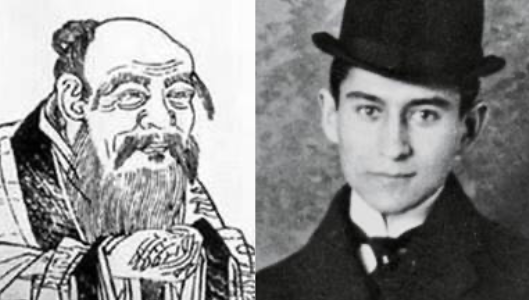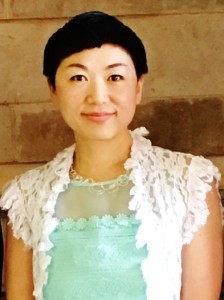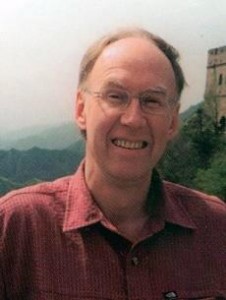

Chinese Classics for German Modernity: Laozi to Kafka
July 27, 2020 @ 5:30 pm - 7:00 pm
| FreeThe first two decades of the twentieth century defined a new global cultural formation, which we now call “modernity.” Rejecting the historicist assumptions of the nineteenth century, leading writers around the world developed new visions of the future, new approaches to human psychology, and new forms of spiritual cultivation. Germany and the Austro-Hungarian empire produced particularly radical innovations which spread across literature, the visual arts, music, architecture, and scientific disciplines. We are most familiar with figures like Gustav Mahler, Sigmund Freud, and Franz Kafka, but many others joined this constellation. Chinese thinkers shared in these global currents as well as many others.
It is striking that so many of the pioneering European thinkers of this period found inspiration in Asian civilizations, particularly India and China. Although deeply versed in Christian and Jewish learning, they broke through limitations of their own traditions, finding in the classics of Asia new sources of spiritual and cultural inspiration. In this encounter with Asia, they transformed the texts they discovered, through translation and the creation of new texts, forging penetrating insights into the modern world.
In this seminar we will examine just a few examples of this extensive intercultural exchange, focusing on the impact of four ancient Chinese classics on two major German writers. We will study closely excerpts from Laozi, Liezi, Zhuangzi, and the Yijing [Book of Changes], as interpreted by Franz Kafka and Richard Wilhelm.
Franz Kafka (1883-1924), born in Bohemia in the Austro-Hungarian empire, is of course best known for his short stories, like “Metamorphosis,” and his novels The Trial and The Castle. But in 1917, after being diagnosed with the tuberculosis that eventually caused his death, he retreated to the small village of Zürau, where he wrote 109 aphorisms on slips of paper, each of which is an intense, cryptic meditation on the journey of the soul. Many of them resonate in striking ways with ancient Chinese poet-philosophers like Laozi, Liezi, and Zhuangzi. Through creative writing, Kafka not only penetrated esoteric Daoist classics, but also furthered their spirit in a way that transcends Richard Wilhelm, the pioneer German Sinologist.
Richard Wilhelm (1873 – 1930), trained as a Protestant theologian, went to China shortly after Germany acquired its leasehold territory at Tsingtao in Shandong. He spent over twenty-five years in China, and on his return to Germany taught Chinese philosophy, while translating and interpreting many of the Chinese classics. His most famous work is his translation of the Book of Changes, an ancient divination text which contains concise, cryptic explanations of the 64 hexagrams. Wilhelm’s translation, retranslated into English in 1950, became extremely popular in the U.S., inspiring much of the postwar American enthusiasm for Asian religions and spirituality, and it is still a major source today. But how do the original Chinese text, Wilhelm’s German version, the English version of Wilhelm, and new English translations each provide multiple perspectives on this baffling philosophical text? We will look at a few selections and attempt to puzzle them out.
This seminar will enlist you as pioneers in the search for multiple crisscrossing strands linking the fundamental cultural concepts of China, Germany, and the U.S, from ancient to modern times. Please join us in this adventure!
This seminar will be conducted online. Readings will be provided in advance of the seminar, and all participants are asked to complete the readings and to participate in the discussion.
Our Professors:
Huiwen Helen Zhang, Wellspring Associate Professor of Chinese and Comparative Literature, University of Tulsa
Educated at Peking University, Universität Erlangen-Nürnberg, and Yale, Huiwen Helen Zhang identifies herself as a transreader—a lento reader, poetic translator, creative writer, and cultural critic in one. The role of transreader and the theory of transreading link Dr. Zhang’s research on Chinese, German, and Scandinavian literature, philosophy, history, and art. Dr Zhang’s current projects combine panoramic vision with meticulous methodology. Her second book, Transreading: A Common Language for Cultural Critique (under contract), engages those whom Dr. Zhang terms “transreaders of modernity”: Kierkegaard, Nietzsche, Strindberg, Döblin, Kollwitz, and Lu Xun. Her third book, Kafka’s Dao: The Patience Game, challenges the reader to decipher one of the most astonishing cross-cultural enigmas: how, through transreading, Kafka transplants the seed of Dao and nurtures it in a European mind.
Peter C. Perdue, Professor of History, Yale University
Professor Perdue has taught courses on East Asian history and civilization, Chinese social and economic history, the Silk Road, and historical methodology. He is a member of the American Academy of Arts and Sciences. He is the author of numerous books, including China Marches West: The Qing Conquest of Central Eurasia (Harvard University Press, 2005). His current research focuses on Chinese frontiers, Chinese environmental history, and the history of tea. Most recently, he has published an introduction to environmental history in Chinese. Professor Perdue has taught under the EverScholar model to great acclaim.
To Register for this seminar, please complete the form below:

